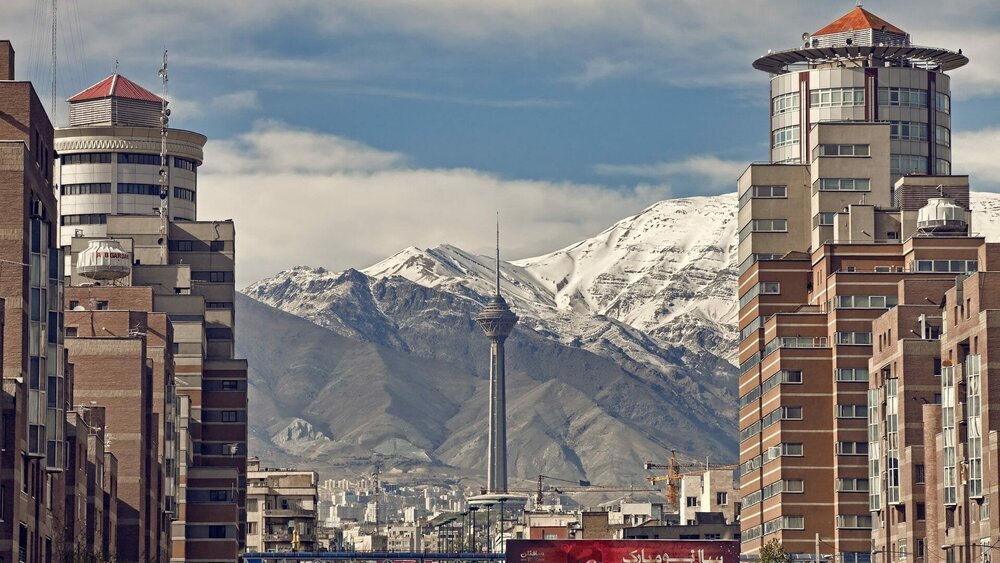Tehraners facing non-stop rising of housing prices

TEHRAN- According to a recent report released by the Central Bank of Iran (CBI), the housing price in Tehran city has risen 10.5 percent in Mordad, which is the fifth month of the Iranian calendar year (July 22-August 21), from its previous month.
The CBI report also indicates that the housing price in the capital city has risen 77.4 percent in the fifth month of this year, from the same month of the previous year.
The report put the average price of one square meter of a house at 231.1 million rials (about $5,502) in the capital city.
Meanwhile, the number of real estate deals has fallen 35.4 percent in Tehran in the fifth month of this year compared to the fourth month, while rising 175.8 percent compared to the same month of the past year.
Also, the number of real estate deals in the country has risen 15 percent in the fifth month of the current year, compared to the same month in the previous year, according to the chairman of Real Estate Agencies Union.
Mostafa Qoli Khosravi said, “The housing market is now passing an acceptable trend, and we are seeing growth in the number of deals.”
But what is witnessed in the capital city does not seem acceptable at all. Jumping prices in Tehran’s housing sector is not what the people can afford.
In early May, the deputy head of the Tehran Real Estate Association had said, “The housing market is experiencing inflation and rise in prices, both in terms of rentals and sales, but the rise in prices is not going to be like the last year's sudden surge.”
Hesam Oqbaei said, “Last year when house prices experienced a 100-percent growth, rent prices rose by as much as 30 percent. Of course, this year we anticipate that rent growth will not reach inflation and will stay below the inflation rate.”
Oqbaei underlined the lack of balance in supply and demand as the main reason for the upward trend in housing prices and said since there are not enough bank facilities available to homebuyers, more people will stay as tenants and the demand for house rents increases, so consequently rent prices will also rise in areas where there is an imbalance between supply and demand.
In late June, Finance and Economic Affairs Minister Farhad Dejpasand announced the establishment of the country’s real estate stock exchange.
The minister had stated that the Economy Ministry was finalizing the issue with the Securities and Exchange Organization (SEO).
In late July, a member of Iran’s Securities and Exchange High Council announced that the country’s real estate stock exchange would be established by the coming four-six months.
The establishment of such exchange is in line with the government’s policy of providing housing units for the underprivileged, and many efforts have been already made to prepare the required infrastructure in this due.
The head of the Tehran Stock Exchange (TSE), which is Iran’s major stock exchange, had previously announced that the real estate stock exchange was due to be established in the middle of the fourth Iranian calendar month (early July).
When established, it will be the country’s fifth major stock exchange. The four other ones are TSE, Iran’s over-the-counter (OTC) market, known as Iran Fara Bourse (IFB), Iran Energy Exchange (IRENEX), and Iran Mercantile Exchange (IME).
Deputy Head of Iran Chamber of Commerce, Industries, Mines, and Agriculture (ICCIMA) says the establishment of the country’s real estate stock exchange is going to promote transparency in this market.
According to Hossein Selahvarzi, establishing this stock exchange is going to be an opportunity for making the transactions in the housing market more competitive and transparent, and will gain people's trust for participation in mass construction projects.
In early July, speaking in a meeting with the officials from Iran Mercantile Exchange, which is in charge of the establishment of the real estate exchange, Selahvarzi said: “We are studying various aspects of the project.”
The official noted that the Real Estate Exchange Company is going to be established with an initial capital of 50 trillion rials (about $1.2 billion), of which 50 percent will be offered to people via underwriting, while 25 percent will be shared among government agencies and another 25 percent is given to the private sector companies.
Underlining the great capacities of this exchange, Selahvarzi said the capital market has the ability to define practical tools for financing the real estate market and large construction projects, and it will make people more confident in participating in the implementation of such projects.
Leave a Comment